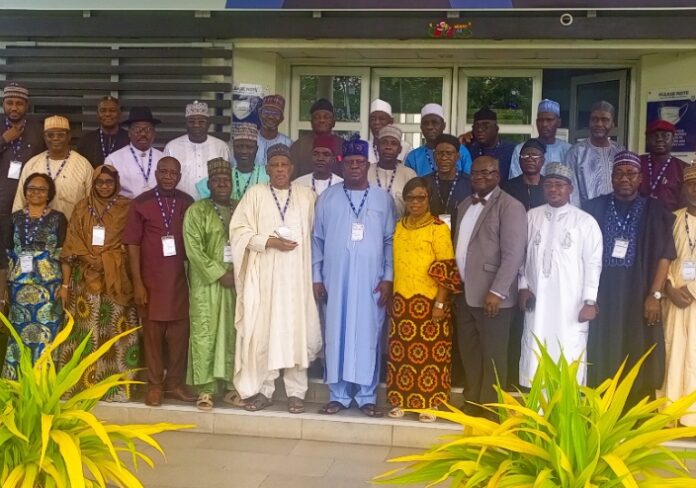The Executive Secretary of the Universal Basic Education Commission (UBEC), Dr. Hamid Bobboyi, has revealed that the commission is working round the clock to reduce the number of out-of-school children in Nigeria from its current 10 million.
Bobboyi, who spoke at a training workshop in Lagos for chairmen of the State Universal Basic Education Board (SUBEB), said statistics from UBEC reveal that out-of-school children from ages six to 11 have decreased from 10.2 to 9.6 million between 2018 and 2021 and have been projected to decrease further to 9.5 million in 2022.
According to him, global data on out-of-school children between ages six and 18 years collected by the United Nations Educational, Scientific, and Cultural Organization (UNESCO) reveals that Nigeria now has about 20 million out-of-school children, which some misconstrue for ages six to 11 years.
The UBEC boss added that people still do not understand nature and how UNESCO arrived at the figure of 20 million out-of-school children. UNESCO has adopted a new methodology with the Sustainable Development Goal in mind, which was used to arrive at the figures that take ages six to 18 years, which is from primary school to senior secondary level, to reach 20 million.
“UBEC has its statistics and has presented them to UNESCO, which have been validated with figures, and the only thing we need to do is make a push to ensure that we reduce the number of out-of-school children.”
He used the occasion to call on UBEC, SUBEB and other relevant stakeholders to synergies in line with their mandate to move basic education forward.
His words: “Basic education has its challenges in the country, and we are in a difficult financial situation in the country. The quantity of available resources has started to decline and is not what it used to be, which is creating some problems.
“With up to 50 million children in basic education from primary to secondary school, various states have been able to at least provide for the children in a manner that is commensurate with the resources available, so we must continue to use the tools and resources at our disposal to make sure there is a different and sustainable improvement in our education sector,” he said.
At the workshop, the Director of, the System Study and Review Department of the Independent Corrupt Practices (ICPC), Abuja, Mr. A. Udofia, urged UBEC, SUBEB and stakeholders to safeguard and manage public resources with integrity and according to relevant laws.
In his paper titled: “Accountability and transparency in UBEC Projects and Programmes”, Udofia advised chairmen and boards of SUBEB to read and understand anti-corruption laws, especially, the Public Procurement Act 2007.
The Bureau of Public Procurement (BPP) in a paper by Mr. Adebowale Adedokun, said what is required is people with good character and fear of God to be in charge, adding, success is about people. Public interest before personal or political gain.”














